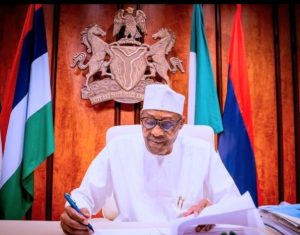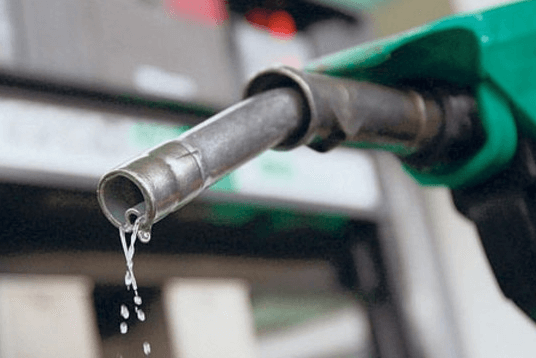IPMAN Says Buhari has outlawed N165 per litre petrol regulated price with PIB’s Assent as clock ticks on corporate existence of PPPRA, DPR, others
The retail price of Premium Motor Spirit (PMS) also known as petrol is to hit N300 per litre as President Muhammadu Buhari signed the Petroleum Industry Bill (PIB) into law.
Independent Petroleum Marketers Association of Nigeria (IPMaN), which disclosed this exclusively to Platforms Africa, maintained that the regulated price of N165 per litre across the country has already been outlawed by Buhari’s action.
READ ALSO: BREAKING: Nigerian President Buhari Signs Petroleum Industry Bill into law
DPR confirms Platforms Africa Exclusive Story on Shakeup, Deputy Directors
BREAKING: 7 Senior Mgt. Staff Affected as Shakeup rocks NNPC + FULL LIST
JUST IN: Buhari makes U-Turn, orders DPR to return revoked Addax oil blocks
PIB is a legislation that has immediately outlawed fuel subsidy and the regulated price of N165 per litre, which the commondity is selling before the Presidential assent.

Petroleum Products Pricing Regulatory Agency (PPPRA) and other key agencies in the Nigeria’s multi-billion dollars oil and gas industry are also at the tail end of their existence. They will either be scrapped or change present form to a new one.
Platforms Africa reports that the measure would also scrap the Petroleum Equalisation Fund, which used to distribute cash to keep nationwide petrol prices uniform, and transfer remaining money to a midstream gas infrastructure fund.
In addition, it would create new regulatory bodies, scrapping the Petroleum Products Pricing Regulatory Agency (PPPRA) and transferring to a new commission many of the tasks currently handled by the Department of Petroleum Resources (DPR).
National Operations Controller, IPMAN, Mike Osatuyi, who said that the signing of the bill to law is the best thing to have happened to Nigeria’s oil industry in decades, disclosed that the bill has outlawed fuel subsidy and regulation of prices at the retail outlets.
With these, he added, the new price of petrol wiould be N300 per litre.
“It is going to set us free from the jaws of exploiters both locally and internationally. It will bring more money to the covers of Nigeria. It has immediately changed the chemistry of the industry. I want to congratulate all Nigerians that this is happening in our life time after the age long delay,” Osatuyi said in a phone interview with Platforms Africa.
The IPMAN chief continued; “Nigeria’s oil industry is for the better now. There will be transparency, there aill be accountability and there will be more investments.
“Immediately the President signed the bill into law, the international price of crude will afffect the price of petroleum products but I can tell you that this will remove a lot of misconducts and corruption in the system.
“The pump price as at today will be N300 per litre based on many indices. That is the same price that diesel is also selling at the moment.
“This happened in the Telecoms sector when it all started but I can tell you that today, we are all better fir it.”
Harmonisation work of contradictory provisions in the bill was finalised penultimate week, Platforms Africa reports.
The bill privatised the Nigerian National Petroleum Company (NNPC), amend changes to deepwater royalties made late 2019 and scrap PPPRA and other key regulatory agencies in favour of new bodies.
“The bill has finally gotten Presidential assent after the completion of an harmonisation at the National Assembly,” this newspaper (Platforms Africa) gathered.
President Muhammadu Buhari has sent the bill to the Senate, It, along with the House of Representatives, signed off on the bill last month week. The bill has now become law in Nigeria, Africa’s largest crude exporter.
The legislation was in the works for the past 20 years and looks to revise laws governing Nigeria’s oil and gas exploration not fully updated since the 1960s because of the contentious nature of any change to oil taxes, terms and revenue-sharing.
The bill proposes creating a limited liability corporation into which the ministers of finance and petroleum would transfer NNPC assets.
The government would then pay cash for shares of the company and it would operate as a commercial entity without access to state funds.
The changes would in theory make it easier for the struggling company to raise funds.
The law will also offer 3 per cent of investments value to the host community whule it seeks to allow the NNPC dedicate 30 per cent of its profits to the fribtier basins exploration.
In the same vein, it contains a provision known as the drill or drop where oilfields licensees are mandated to either drill the assests or drop them for those with capacity to do so.
The legislation would also amend controversial changes to deep offshore royalties made late last year by cutting the royalty that companies pay the government for offshore fields producing less than 15,000 barrels per day to 7.5% from 10%, Platforms Africa reports.
It would change a price-based royalty too, so that it kicked in when oil prices climbed above $50 per barrel, rather than $35.





